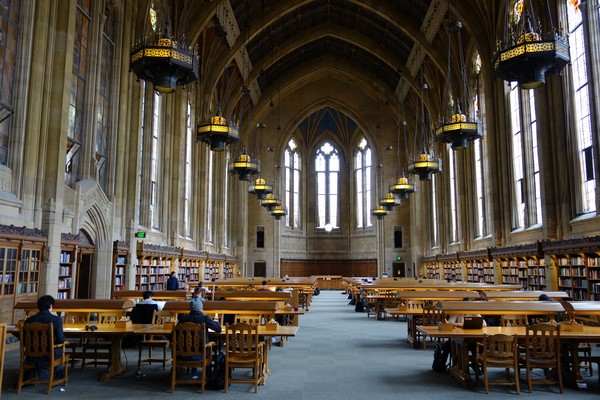The capitalization of academic materials and the struggle for free knowledge
WITH THE recent seizing of the free online database Z-library by the U.S. Department of Justice, college students’ reliance on piracy has since been spotlighted. However, this is not a stand-alone struggle but rather one that extends to the gatekeeping of academic knowledge via paywalls. A conversation on the inaccessibility of knowledge must be held: who is it benefitting and at what expense?

The current distribution system of academic knowledge
Every academic text you have ever browsed has likely passed through the hands of academic publishers. These publishers work with academics by placing their work in academic journals, allowing research to be disseminated, read, and cited by other academics and researchers. University and public libraries also work closely with academic publishers by paying a subscription to periodically access a database of academic journals and e-books for student and public use.
The limitations
While researchers appear to benefit the most, they hardly profit from their journal contributions and conversely pay to get their work published[1]. Academics hoping to grow their careers are at the system’s mercy—only by having their works in reputable journals or disseminated by credible publishers are academics likely to get cited and hence secure their next research grant, job promotion, or tenure at universities.
This system is also disadvantageous for university libraries. They are forced to buy bundle deals from publishers as purchasing individual journal titles is costlier, and monopolistic publishers can up these subscription costs for more profit. Even e-book subscriptions have their limitations as each digital copy is limited to one patron, making it hard for students to borrow the same textbook. Fiscally challenged students then rely on free online repositories which provide easy accessibility at no cost.
For public libraries, their services that give access to academic databases are virtually not promoted and thus remain obscure. Furthermore, their e-book copies of textbooks are limited in number, and physical materials are often available only for reference and not for loaning.
This distribution system thus benefits publishers while constraining students and institutions—causing them to respectively resort to piracy and struggle with budgetary limits.
Open Educational Resources’ ability to shift the paradigm
How then, can one envision an alternative order where power is restored to the creators and consumers of knowledge? We may look towards Open Educational Resources (OER)— public domain resources free to access, download, and modify. This removes economic and accessibility barriers as well as ease circulation, thereby ensuring availability of the latest and relevant materials for research and learning[2].
Even if it seems counterintuitive for academics to place their work in the public, they can still gain citation prestige as users have to cite their research. This way, researchers can gain credibility and improve their job prospects.
A drive towards a future of free and open resources
With mounting frustrations towards paywalled-resources, it figures that OER movements have been initiated. One such campaigner is Coalition S, a group of European public research organizations. From 2021, all their public-funded scientific publications are to be published in open access platforms[3], thus opposing closed access journals and advocating for open licensing.
Another source of OER is social networking services like ResearchGate, where anyone can freely sign up and upload their research scripts. Yet, a drawback is that articles do not need peer-reviewing, hence their credibility cannot be ensured.
* * *
Nonetheless, the current distribution system of academia needs revamping as knowledge gatekeeping hinders progress. Fundamental to democracy, free knowledge allows citizens to educate themselves on social issues and collaborate on public policies. It also allows for scientific innovation and economic progress by creating learning cultures where knowledge and skills can be freely acquired, thereby aiding emerging economies or researchers which could otherwise not afford extensive research databases. Hence, while OER initiatives do have their limitations, they should still be supported as each step taken will lead us to a future of equitable knowledge for all.
[1] American Journal Experts
[2] Pennsylvania State University
[3] Coalition S

